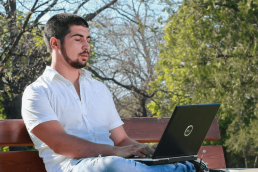“Of all activities on the internet, porn has the most potential to become addictive,” say Dutch neuroscientists Meerkerk et al.
See our updated and improved set of evidence-based lesson plans for secondary schools on internet pornography and sexting. Our unique approach focuses on the adolescent brain. The Reward Foundation been accredited by the Royal College of General Practitioners in London to run training on the impact of internet pornography on mental and physical health. Find the lessons here.
We have listened to pupils, teachers, youth leaders and parents in schools and workshops. We’ve examined hundreds of research papers into the effects of porn use by young people over time. With the assistance of over 20 professionals across education, health and law, we have crafted lessons with videos and discussions. We hope these will prove inspirational to young people and give confidence to teachers to present these tricky topics. We have piloted the lessons across the UK. They comply with the latest government guidelines on relationships and sex education.
Questions we ask
Is pornography harmful? Ask the jury of pupils. In “Pornography on Trial” we set out 8 pieces of evidence from a wide range of sources, for and against, to allow pupils to evaluate the question for themselves.
If most porn is free why are PornHub and other porn sites worth billions of dollars? In “Pornography and Mental Health”, pupils learn more about the impact of the attention economy on mental health. They discover how social media and porn websites are specifically designed to be habit forming to keep users wanting more and more.
Does pornography affect mental and physical health? “Sexting, Pornography and the Adolescent Brain” covers the signs and symptoms of overuse. Does it affect relationships? What can users do if they feel snared by porn? Our lesson plans teach children about the unique characteristics of their adolescent brain and why sexting and porn become so alluring from puberty onwards.
What does a trusting, loving relationship look like? Pupils are keen to discuss “Love, Pornography and Relationships”, in an open way in a safe space. Where do I go for help if I need support?
How do the legal authorities look at sexting? Pupils examine case studies based on real life examples with ones for 11-14 year olds and another set for 15-18 year olds. What happens if a pupil is reported to the police? How does it affect future job opportunities, even volunteering? The lesson plans deal with the legal impact of sexting.
What are the key drivers of the brain, its strengths and vulnerabilities, during adolescent development? In “Sexting, Pornography & the Adolescent Brain” they discover how best to build their own brain to be a more successful person.
Can internet pornography cause erectile dysfunction, even in young men? What impact does that have on a relationship? See the latest developments in research since the very popular TEDx talk, “The Great Porn Experiment” in 2012. It has been viewed over 15 million times.
If I find I can’t stop looking at pornography even when I want to, where do I go for help? The lessons all provide signposts to help online that allows users to assess with the help of approved questionnaires and quizzes if they have developed problematic use of pornography and if, so, where to find help.
The lessons on internet pornography and sexting are available in a UK edition with separate legal versions on sexting for Scotland, England and Wales, as well as an American editions. The latter edition does not contain a lesson on the sexting and the law.
For more information contact Mary Sharpe by email: [email protected].




